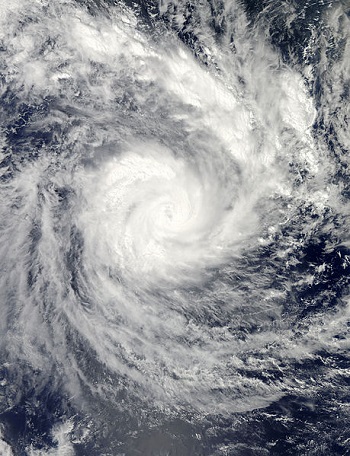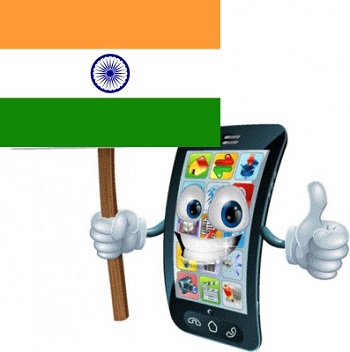BWild |
December 19, 2014
Farmers and other people across the Pacific Island nation are using smartphones to purchase necessary supplies.
Despite the fact that almost two years have passed since Samoa was devastated by Cyclone Evan, the Pacific Island is still working to recover from the catastrophe, and mobile technology has been playing a vital role in this process.
During the worst of the storm, winds reached up to 105 miles per hour, whipping the sheets of rain.
The waves were 13 feet high and storm surges were driven by the powerfully gusting winds. The World Bank created a post-disaster needs assessment following the storm and it showed that it was the agricultural segment of the country that experienced the greatest devastation. Over 7,000 families on the country’s Upolu island lost their livestock, crops, and farming equipment. The loss of income continues to hurt the communities that were dependent on agriculture. Programs have been set in place to help to recover and many now include the use of e-vouchers and mobile technology.
Mobile technology has provided massive relief in a system that has been piloted by the government in Samoa.
 The program is based on the use of mobile device technology. Affected families have been provided with e-vouchers that can be used as payments for the replacement of farming supplies. The system works by transferring funds directly to the smartphones of the farmers, which have a special chip enabled within them.
The program is based on the use of mobile device technology. Affected families have been provided with e-vouchers that can be used as payments for the replacement of farming supplies. The system works by transferring funds directly to the smartphones of the farmers, which have a special chip enabled within them.
The system then allows those funds to be used for the purchase of over 5,000 specifically pre-approved “white listed” items that are sold from designated vendors. The items that have been authorized to be purchased by the farmers include building materials, as well as equipment for fishing and farming.
This represents the first time that the Pacific region has used this type of technology using mobile devices, and the practicality and cost effectiveness of the effort has been astounding. The risk of fraudulent use of the funds has been considerably reduced by linking the point-of-sale systems to the white listed products. Moreover, as it uses mobile technology, the electronic databases notably lower the need for paperwork. Those same databases also make it possible for improved and more reliable evaluation and monitoring of the program.
BWild |
December 15, 2014
Flipkart and Snapdeal are revising their marketing strategies to be more mobile-centirc
Major online retailers in India are beginning to aggressively promote their new mobile applications. Flipkart and Snapdeal, two of the largest online retailers in India, are beginning to focus their marketing efforts on the mobile space. A growing number of Indian consumers are gaining access to mobile devices and the Internet, which has lead to a surge in mobile commerce activity. Flipkart has opted to forgo participating in Google’s Great Online Shopping Festival in order to promote its new mobile shopping app. Snapdeal will be participating in the event, however, taking the opportunity to showcase its own shopping app.
Companies are offering special deals to consumers that make use of their mobile shopping apps
E-commerce companies throughout India are beginning to revise their customer acquisition strategies, making them more mobile-centric. These companies are offering consumers special deals if they install their mobile shopping applications on their devices. Both Flipkart and Snapdeal expect to create new loyal customers through their apps than through online search engines that regularly direct consumers to online retail sites.
Flipkart is spending more on the mobile space, focusing less on display advertising and search engines
 Much of Flipkarts marketing expenditure has been focused on search engine and display advetising. Though the company has not released information concerning revisions being made to the amount of money it is spending in this way, Flipkart is beginning to focus more heavily on the mobile space. Installing a mobile app on a smartphone or tablet is often seen as an endorsement from consumers. Those installing these apps have shown that they are willing to use it to shop online and purchase products from a particular retailer.
Much of Flipkarts marketing expenditure has been focused on search engine and display advetising. Though the company has not released information concerning revisions being made to the amount of money it is spending in this way, Flipkart is beginning to focus more heavily on the mobile space. Installing a mobile app on a smartphone or tablet is often seen as an endorsement from consumers. Those installing these apps have shown that they are willing to use it to shop online and purchase products from a particular retailer.
Google may have to adapt to changes in retail customer acquisition
As e-commerce companies in India begin to revise their marketing strategies, Google may have to follow suit. The company relies heavily on its search engine and display advertising services to generate revenue, but if more companies are focusing on mobile app installations, Google may find it harder to produce revenue through its traditional strategies.
 The program is based on the use of mobile device technology. Affected families have been provided with e-vouchers that can be used as payments for the replacement of farming supplies. The system works by transferring funds directly to the smartphones of the farmers, which have a special chip enabled within them.
The program is based on the use of mobile device technology. Affected families have been provided with e-vouchers that can be used as payments for the replacement of farming supplies. The system works by transferring funds directly to the smartphones of the farmers, which have a special chip enabled within them.
 Much of Flipkarts marketing expenditure has been focused on search engine and display advetising. Though the company has not released information concerning revisions being made to the amount of money it is spending in this way, Flipkart is beginning to focus more heavily on the mobile space. Installing a mobile app on a smartphone or tablet is often seen as an endorsement from consumers. Those installing these apps have shown that they are willing to use it to shop online and purchase products from a particular retailer.
Much of Flipkarts marketing expenditure has been focused on search engine and display advetising. Though the company has not released information concerning revisions being made to the amount of money it is spending in this way, Flipkart is beginning to focus more heavily on the mobile space. Installing a mobile app on a smartphone or tablet is often seen as an endorsement from consumers. Those installing these apps have shown that they are willing to use it to shop online and purchase products from a particular retailer.